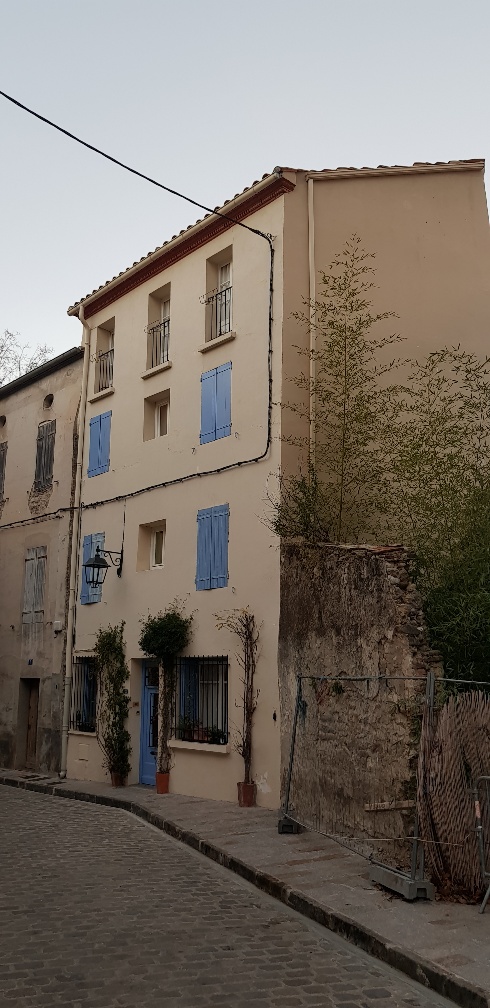The visitor information for Dachau Concentration Camp memorial site recommends children under 12 do not visit the site. The older girls have read the excellent Morris Gleitzman Once series and have been keen to know more. Having read as much as I could find about the memorial I could find no strong reason not to visit as a family.
The girls were given a briefing in the car from Munich about behaviour and respectfulness at the site, but in retrospect I need not have worried. Seeing the rowdy disorganized behaviour of the various older school groups gathering to go in, I knew the sisters would be fine.
The walk through the former camp takes a couple of hours and is designed to be self led through displays in the buildings starting with the entrance through the main “Arbeit Macht Frei” gate, through the roll call area, maintenance building (where the prisoners were checked in) and bunker (the camp prison). These main buildings contained the majority of the historical guide through the prison including insight into the political context from when the camp first opened in 1933 and the gradual addition of first political prisoners then subsequent social and ethnic groups. As many personal stories as possible were of course included and were a great way to involve the girls in the history, particularly of the “forgotten victims”.
We’re then guided through a barracks block with bunks set up to demonstrate the changes with time as the camp became more crowded. Many of the original buildings of the camp were destroyed and the reconstructions have been with the respectful memorial in mind; however it’s seeing the toilet room or bunk rooms with three layers of wall-to-wall bunks which brings the reality home most strongly.
The shower/gas chamber and crematorium block is the last part of the memorial and, though chilling, wasn’t as troubling as I feared it would be – I expect partly because the facts of the buildings are by now so well known but also perhaps the line of tourists walking through means no opportunity for quiet reflection while inside.
Our time for reflection really came later that evening when Michael and I had more time to talk. So much of our history (world history, European history, all of it) has been preserved in memorials of some kind. In the case of the German history of World War Two and prior, it took international and local groups many years to push to preserve and open places like Dachau. Still not all Germans would support such a horrific part of their history being held in such esteem – preferring to “leave the past in the past”. Yet this attitude is highly selective. There are few complaints from those same opponents about the preservation of palaces.
With elections in Australia and Europe, Brexit and the Trumpist USA, we separately were struck by the parallels with the rise of the German Reich. This sounds alarmist I know, but seeing the context of the post WWI economy, the gradual build-up over years of propaganda and policy designed to demonise ethnic groups AND those who questioned the regime, one could almost have overlaid boat people/Mexicans/refugees and reused the 80 year old advertisements in current twitter feeds. We read about the medical care of those in Dachau. There was a camp doctor (usually also a prisoner) who was not permitted to provide medical assistance in any form. Or was that Nauru?
So where did those parallels leave us? In many ways despairing, or at least depressed. What have we as humans learnt? How can we say learning this history has helped at all in preventing such atrocities in the future, when we can so clearly see them happening again right now? And where even our free and fair elections result in policy which sees history repeat itself. I have no answer, but some optimism as always.
Twenty-seven years ago as a student near Köln, my classmates and I attended a demonstration in support of the Ausländer in Germany and against the rise of the NeoNazis. In the last weeks we have seen similar protests. Maybe those rowdy disorganised groups of kids sitting outside Dachau are paying attention after all.

I admire your courage for choosing to take the Sisters. The lessons they have learned on this trip are truly staggering, many that most people will not experience in their entire lives. Thankfully they are mature and intelligent enough to actually appreciate most of it (I imagine) and the world will, in years to come, appreciate the time and expense you as parents took in giving them this education, as they pass on their knowledge and experience through their friendships and chosen vocations. Life is not just about being lucky enough to see all things bright and beautiful, also about really seeing all things hideous and unbearable- which gives true weight and meaning to the entirety of it all xxxx